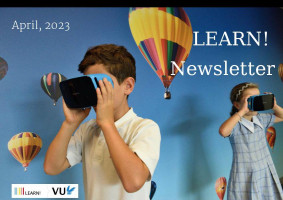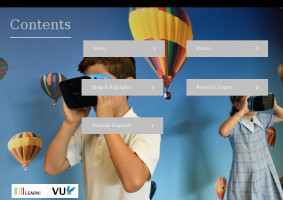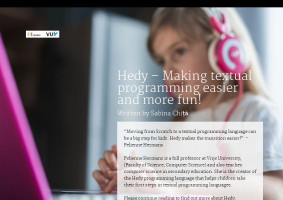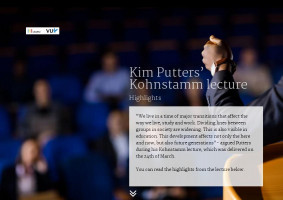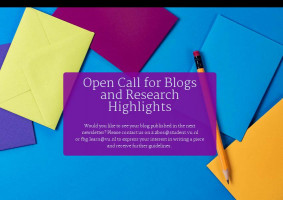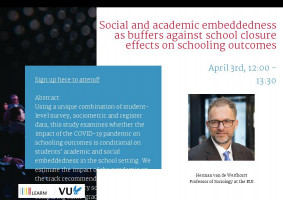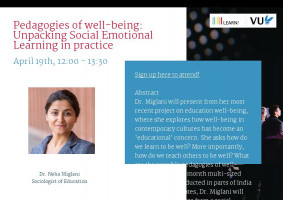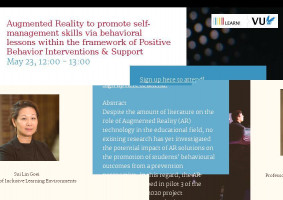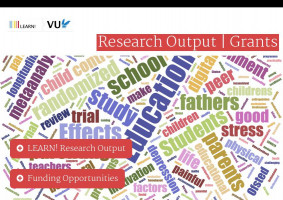Please continue reading to find out about the news from the Learning Sciences, Educational Governance and Educational Neuroscience programs.
Highlights:
- Martijn Meeter (Learning Sciences) and Melanie Ehren (Educational Governance) joining advisory boards on the Dutch numeracy and literacy masterplan
- Tieme Janssen and Nienke van Atteveldt (Educational Neuroscience) publishing an article about their newly developed growth mindset intervention
- Ilona Benneker (Educational Neuroscience) publishing her first study
NEWS FROM THE LEARNING SCIENCES and Educational Governance PROGRAMs:
Martijn Meeter and Melanie Ehren joining advisory boards on the Dutch numeracy and literacy masterplan
The Dutch Department of Education launched a new long-term policy to improve numeracy and literacy in primary and secondary education in the Netherlands in 2022. Schools, and particularly those with poor learning outcomes in these areas, will receive additional funding, while additional funding will be allocated to strengthen initial teacher training, reorient inspection frameworks, enhance evidence-informed teaching and school leadership and support the wider educational infrastructure. Professor Melanie Ehren has been appointed to the scientific advisory committee that will support the national evaluation of the masterplan, while Professor Martijn Meeter will contribute to a panel that will discuss assessment standards in numeracy and literacy. More information about the masterplan (in Dutch) can be found here.

Learning Sciences program organizing a regular symposium series
The symposia usually take place on Thursdays at 12.30. You can find the schedule for the coming months with the speakers and topics here.

_w780_h394_1.png)
Summary: "What if we could make growth mindset interventions more effective by leveraging experiential learning principles? We did so, using mobile EEG neurofeedback. High school students experienced the controllability and malleability of their own brain."
Check their promising results here.
OR
Read a blog by Janssen and van Atteveldt here.
ILONA BENNEKER PUBLISHING HER FIRST STUDY
Ilona Benneker is a PhD student in the Educational Neuroscience program, who combines her research with being a biology teacher in high school. She published her first study recently, which is titled ‘Mindset and perceived parental support of autonomy safeguard adolescents’ autonomous motivation during COVID-19 home-based learning’. The findings of the study highlight the personal and family factors that influence how adolescents respond to home-based learning and suggest ways to keep adolescents motivated and diminish possible negative consequences during future home-based learning situations. You can read the publication here.
